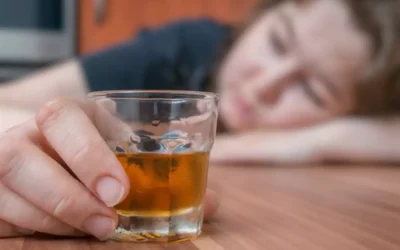In residential treatment, “an individual stays in a treatment setting, receives intensive therapy, and is physically separated from alcohol in order to recover,” says Kennedy. Because of this shared connection, treatment for both should include a diet to improve gut function and reduce endotoxin load that contributes to neuroinflammation. can alcohol make depression worse Following a Mediterranean diet rich in omega-3s, for example, might be one recommendation. Individuals diagnosed with clinical depression should be extremely cautious when it comes to using substances such as alcohol. According to Kennedy, for those taking antidepressants, combining them with alcohol can reduce their efficacy.
Relationship issues
As a result, you could drain your bank account, lose a job, or ruin a relationship. When that happens, you’re more likely to feel depressed, particularly if you have a family history of depression. People who are depressed and drink too much have more frequent and severe episodes of depression and are more likely to think about suicide. Alcohol may be a form of self-medication for people with depression. The “burst” of energy from alcohol can be a welcome relief against some symptoms. For example, alcohol may temporarily reduce anxiety and lower inhibitions.
Treatment of Co-Occurring AUD and Depressive Disorders

Research tells us that people who regularly drink experience reductions in folic acid; a member of the B-9 vitamin family. That’s important to know because a lack of folic acid can cause your brain https://ecosoberhouse.com/ to age faster. Now that you’ve got the basics, it’s time to explore 10 specific ways drinking can worsen depression. When you read what follows, try to examine the material free of judgment.
How To Help Someone With Depression and Alcohol Abuse
Your GP can give you advice and/or medication to help you do this safely. The government advises that both men and women should not regularly drink more than 14 units a week. This is the equivalent of six pints of average-strength beer or six medium glasses of wine. If you regularly drink as much of this, it’s best to spread it over three or more days.
- A dual diagnosis can be complicated to treat, no matter the circumstances.
- To make a long story short, depression becomes worse when you feel ashamed about your drinking behaviors.
- The NHS website, Every Mind Matters, has advice on how to access support and treatment for depression in England.
- In fact, as the effects of alcohol recede, you may actually feel more depressed.
- Or you might attend an intensive inpatient group a few times each week.
- Certain ongoing treatment studies also are further evaluating the potential usefulness of buspirone, some specific anti-depressants, and other medications that affect brain chemicals as potential components for treating alcoholism.
- Treatment plans are customized to each person’s needs through online meetings with our medical team.
- Children who were abused or raised in poverty appear to be more likely to get both conditions.
Among heavy-drinking depressed patients, readiness to change drinking behavior may be influenced not only by expectancies regarding alcohol use, but also by beliefs about the effects of alcohol use on their depressive symptoms. That is, patients who believe that their current alcohol use will interfere with their depression treatment may be more willing to change their drinking than those who do not see a link between the two. As part of this discussion, the therapists can attempt to highlight the discrepancy that exists between patients’ current situations and what they desire (Miller & Rollnick, 1991). For most patients, relief of depressive symptoms will be the foremost concern.
- He drank daily in his early 20s — around the time when he started experiencing suicidal thoughts.
- People with DSM-IV alcohol dependence are 3.7 times more likely to also have major depressive disorder, and 2.8 times more likely to have dysthymia, in the previous year.
- If you’re still experiencing symptoms of depression after a few weeks, the NHS advises you to contact your GP surgery.
Alcohol Use Should Be Assessed Routinely as Part of Psychological or Psychiatric Care
Why Alcohol Might Make You Feel Better
Depresses brain and nervous system
Why Substance Misuse Worsens Mental Health – Health Essentials
Why Substance Misuse Worsens Mental Health.
Posted: Sun, 23 May 2021 07:00:00 GMT [source]
